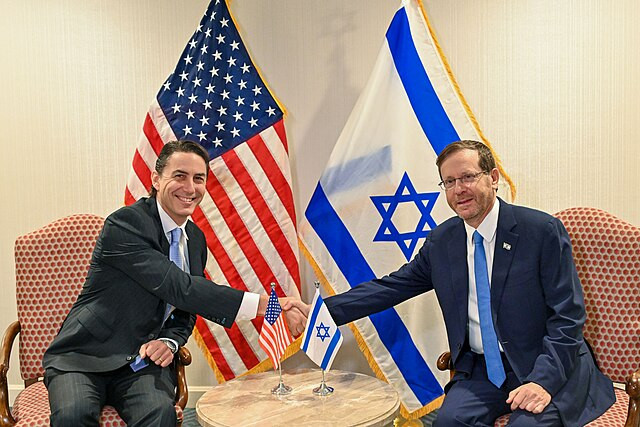The U.S. envoy for the Middle East voiced optimism Tuesday about a potential ceasefire agreement between Israel and Hezbollah in Lebanon, even as conditions in Gaza deteriorate further amid a worsening humanitarian crisis.
Amos Hochstein, the Biden administration's representative, described recent discussions with Lebanon's Parliament Speaker Nabih Berri as "very constructive" and suggested that a truce between Israel and Hezbollah could be within reach. The proposed agreement reportedly involves both parties withdrawing from a U.N.-monitored buffer zone in southern Lebanon, which would be overseen by an expanded force of U.N. peacekeepers and Lebanese troops.
"Specifically today, we have continued to significantly narrow the gaps," Hochstein said after his meeting in Beirut. He underscored that while progress had been made, the decision ultimately lies with the involved parties. "It's ultimately the decisions of the parties to reach a conclusion to this conflict... It is now within our grasp," he stated.
Meanwhile, Gaza faces a deepening humanitarian catastrophe as nearly 100 aid trucks were looted over the weekend, further exacerbating an already severe food shortage. The United Nations reported that armed groups intercepted the convoy, which had been directed by the Israeli military to take an alternative route. U.N. spokesperson Stephane Dujarric explained, "The convoy was rerouted and unfortunately met with organized theft." The incident highlights the desperation in Gaza, where more than 2.3 million people are caught in the crossfire of relentless conflict.
The impact on civilians has been devastating. Residents like Umm Shadi are paying exorbitant prices for basic supplies, with flour reportedly selling for more than $100 per bag. Another resident, Nora Muhanna, described waiting for hours in line for bread, only to return empty-handed. "There is nothing, and if there is, no one can afford it," she said.
The scarcity of supplies is further compounded by restrictions on aid entering Gaza. Tamara Alrifai, communications director for the U.N. Relief and Works Agency (UNRWA), emphasized the challenge of delivering meaningful aid. "Take aid into a war zone a few trucks at a time-what do we expect a displaced, hungry, and traumatized population to do?" she asked.
In contrast, diplomatic progress in Lebanon seems more promising, albeit fraught with challenges. Israel's demands for a more robust enforcement mechanism, including measures to counter Hezbollah threats, remain contentious. Israeli Energy Minister Eli Cohen highlighted the need for a comprehensive arrangement, stating, "There are talks regarding an arrangement with Lebanon, but any deal must ensure that Hezbollah is pushed away from the border."
Lebanon, for its part, has expressed cautious optimism. Speaker Berri, representing Hezbollah, has indicated Lebanon's commitment to maintaining security in line with U.N. Security Council Resolution 1701, which requires Hezbollah to disarm and withdraw from positions near the Israeli border. "All comments affirm precise adherence to Resolution 1701 with all its provisions," Berri's aide, Ali Hassan Khalil, remarked.
The toll of the conflict continues to mount. Israeli airstrikes and ground operations have reportedly claimed more than 3,500 lives in Lebanon since hostilities escalated, with civilian casualties increasing daily. Meanwhile, rocket, drone, and missile attacks from Lebanon have led to dozens of Israeli casualties and injuries. The situation remains tense, with both sides balancing military actions and diplomatic efforts.




